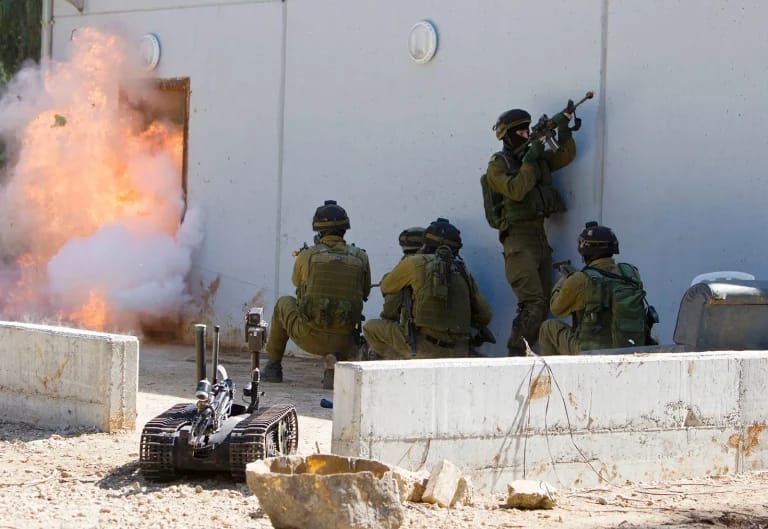The Israeli military confirmed on Thursday morning that its air force intercepted a ballistic missile launched from Yemen.
Military officials reported that the projectile was detected shortly after 4 a.m. and destroyed before it could trigger air-raid sirens. Authorities stated that the missile posed no direct threat to populated areas.
The Iran-aligned Houthi rebels in Yemen claimed responsibility for the launch, describing the weapon as a “Palestine 2 hypersonic ballistic missile” and alleging that it was aimed at Ben Gurion Airport, Israel’s main international gateway. While the Israeli military confirmed the interception, it did not verify the target named by the Houthis.
This interception marks the latest episode in a series of cross-border hostilities that have persisted since October 2023, when Hamas launched an attack on Israel. In the aftermath, the Houthis began sending drones and missiles toward Israeli territory, presenting the strikes as an act of solidarity with Palestinians.
Attacks from Yemen paused during a ceasefire in Gaza but resumed after the truce collapsed in March 2025. The renewed hostilities have included several high-profile incidents that exposed both the intensity of the conflict and the vulnerabilities in Israel’s defense systems.
On May 4, 2025, a Houthi missile reached the perimeter of Ben Gurion Airport after evading interception. The blast left a crater near the terminal and injured eight people, forcing flight suspensions for several days.
In another major incident in December 2024, a missile of the same “Palestine 2” designation struck a playground in Tel Aviv. At least 16 people were injured, and the strike raised serious concerns about the ability of Israel’s air defense systems to counter advanced missile threats.
In response to these repeated provocations, Israel has expanded its range of countermeasures. This includes a naval strike in June 2025 against the Houthi-controlled port city of Hodeidah, which Israeli authorities identified as a hub for suspected weapons smuggling.
The latest interception underscores the evolving threat posed by Yemen-based militant groups, which appear to be developing the capability to strike targets deep within Israeli territory. Defense analysts warn that such advances in missile technology require increasingly complex military and geopolitical responses from Israel.
The situation also highlights the broader regional tensions linking the conflict in Gaza to other flashpoints in the Middle East. The Houthis’ involvement, backed by Iran, adds another layer to the ongoing hostilities, complicating both diplomatic and military efforts to contain the violence.
While Thursday’s interception prevented another potential tragedy, military officials have signaled that the threat remains active and that additional attacks from Yemen are possible. The ongoing exchanges have reinforced concerns about a widening regional conflict and the challenges of protecting key infrastructure and civilian populations from long-range missile strikes.





